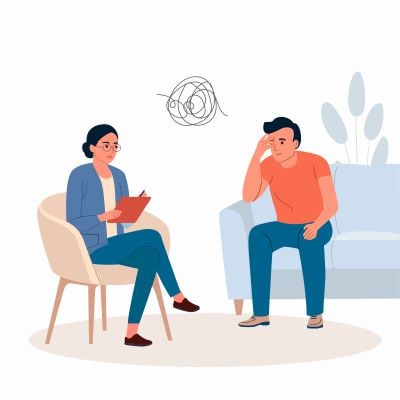Underneath the Hood of Worry: Going Beyond Symptoms to Target Processes
Underneath the Hood of Worry: Going Beyond Symptoms to Target Processes

Throughout the years, my goal as a therapist has been to hone my clinical skills — learn new treatment models, keep up with the latest research, and get training and consultation to help with practical application. These goals have been in the interest of developing some level of expertise, so that when a client walks into my office I can make a proper diagnosis and offer an evidence-based treatment model that fits.
But these diagnoses and treatment models are an approximation. The diagnoses capture clusters of outward symptoms, not underlying processes. The treatments reflect models shown to be statistically effective, but sometimes without clarity around the actual mechanism of change. It’s quite possible, as many clinicians do, to pair these things together — take this protocol and apply it to this symptom cluster and you’ll get results. And you will! But one of the pitfalls of approximation is that it doesn’t tell us much about the individual. It can tell us a lot about what helps other, similar individuals, but it stops short of prescribing exactly what it is that each person needs. What are the unique facets of their presentation? What are the skills that they need to learn? What experiences would foster their growth? How do you adjust treatment to meet their particular brand of struggle? What mechanisms and processes underlie their symptoms?
As a therapist specializing in OCD and anxiety, it’s not uncommon for clients to walk into my office feeling as if their thinking is out of their control, like a habit that has taken on a life of its own. It is indeed part habit. Many people find themselves worrying without ever making a conscious decision to do so. They “snap out of it”, finding that they’ve been lost in thought, time slipping away without any awareness. They’ve been living with this exhausting inner monologue, under the assumption that it’s an inevitable part of their experience and oblivious to the aspects of it that remain in their control. We may not control the initial thoughts that arise, unbidden in our minds, but we do have a say in our response. Worry happens; worrying is a choice.
Our field generally approaches Generalized Anxiety Disorder (GAD) as if there is a clear, straight path down CBT Lane that will lead to a worry-free life. There’s nothing that a little cognitive restructuring won’t fix! And actually, if worry could be boiled down solely to the problem of cognitive distortions, that’d probably a decent fix. But worry tends to be a more complicated phenomenon. As clinicians, we need to assemble techniques that target a variety of processes:
- Our clients may need awareness training, fostering the ability to identify the behavior in real time;
- They may need to learn to practice attention training, building their attention muscle and developing agency over their mind’s focus;
- They may need to utilize cognitive defusion, creating distance when they become immersed in their inner experience;
- They might need to lean into principles of exposure, curating experiences to shape their relationship to anxiety and worry;
- They may need to challenge unhelpful beliefs about worry, noticing the narratives they may be holding onto which keep them stuck.
This list could go on and on. The processes driving worry will vary for every individual. Chances are good that it will not be one or another, but a proprietary blend of several processes which shape each person’s presentation of worry. Our job as clinicians is to explore these processes and work with our clients to curate a blend of interventions uniquely suited to their experience. Of course, we can root our approach in evidence-based practices, but we often need to deftly maneuver between varying approaches to build a treatment suited to the individual, rather than the diagnosis.
















